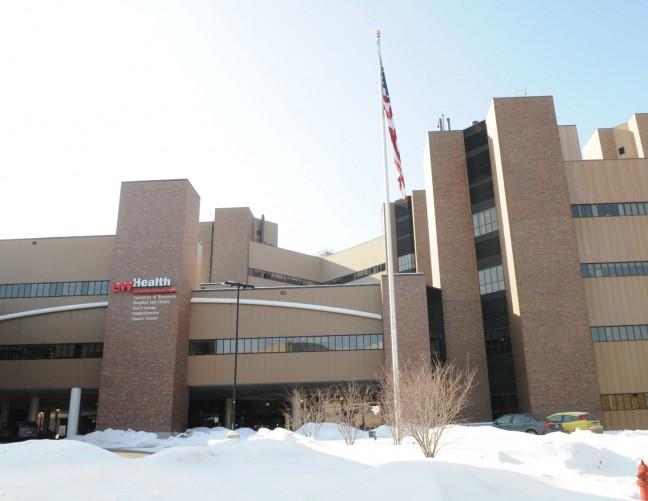A new form of medical technology designed to save hospitals money by helping doctors make more effective decisions is in the works at the University of Wisconsin Hospital.
UW Hospital neurosurgery professor Joshua Medow is the brains behind the creation of this new software — known as the “Digital Intern.”
The Digital Intern software helps medical professionals set goals, Medow said. Using the software, a doctor could set a goal of getting a patient’s platelet or hemoglobin count or get it to a certain level. The Digital Intern would run a series of complex algorithms surrounding the goal and offer a suggestion to the doctor on the best course of action to achieve it.
“We’re able to improve the quality of medications that are being used and reduce the costs,” Medow said. “That’s really the value that we want to provide.”
The Digital Intern software also takes into account a hospital’s electronic medical records and is capable of adapting to individual needs.
The software also prioritizes less expensive means of treatment.
“Sometimes a doctor just uses a drug because they like it, but it happens to be a really expensive drug,” Medow said. “[The software] allows organizations to prioritize drugs that are less expensive and actually reduce costs.”
UW Health announces target of $80 million in reduced expenses
Medow likened the Digital Intern technology to an autopilot mode on an airplane.
By no means does the software override the doctor’s intuition and judgment, Medow said. Instead, it aids their decision-making process, saves time and vastly improves the quality of care delivered to the patients.
The Digital Intern would also allow doctors to manage significantly more patients.
Medow gave an example of how if there is only one doctor in an Intensive Care Unit with three patients who are doing poorly and a fourth patient who is an organ donor and already brain-dead, the doctor’s focus would mainly be on the first three patients, rendering the fourth patient a less-viable candidate for organ donation. Medow believes the Digital Intern could change that.
“It became pretty obvious that you could do something far more complicated to improve the quality of medical care provided in the right circumstances, ” Medow said.
Cutting down on unnecessary costs is not just a matter of concern for UW Hospital, UW Hospital neurologist Luke Bradbury said. Any hospital is working on cost containment, Bradbury said.
With Digital Intern’s capabilities of prioritizing less-expensive medicines and forms of treatment, hospitals across the country will receive a helping hand in minimizing expenses, Medow said.
Medow aims to have this new technology implemented in hospitals across the country and anticipates it being a fairly simple process. One of the most crucial steps in introducing this software is getting access to a hospital’s electronic medical records (EMRs), Medow said.
Hospitals allowing this new technology access to its EMRs are a critical part of Digital Intern’s operations. Without records of how patients react to certain things and without a knowledge of the patient’s medical history, it would not be able to perform up to its full potential, Medow said.
“I think the biggest obstacle [will be] actually getting people to try it. Nothing like this has ever existed to this degree,” Medow said. “Most people, when they think about algorithm-based designs, think about an algorithm that’s rigid . . . and that’s not what medicine is. This machine is able to learn and adjust accordingly.”
Other obstacles include possible mishaps from doctors, like setting the wrong target and having the machine guide them towards a false goal, Medow said. There is also the potential for interns working at teaching hospitals to become far too reliant on the guidance of the software — their digital counterpart — and not fully learning medical processes for themselves.
Medow believes it is possible to avoid these complications by assuring interns are still able to learn under these new circumstances and successful operation of the new system ultimately comes down to faculty and individual workflow.
“It is the future of medicine,” Medow said. “Most people didn’t even think this was possible to do, and we have actually accomplished it.”


















